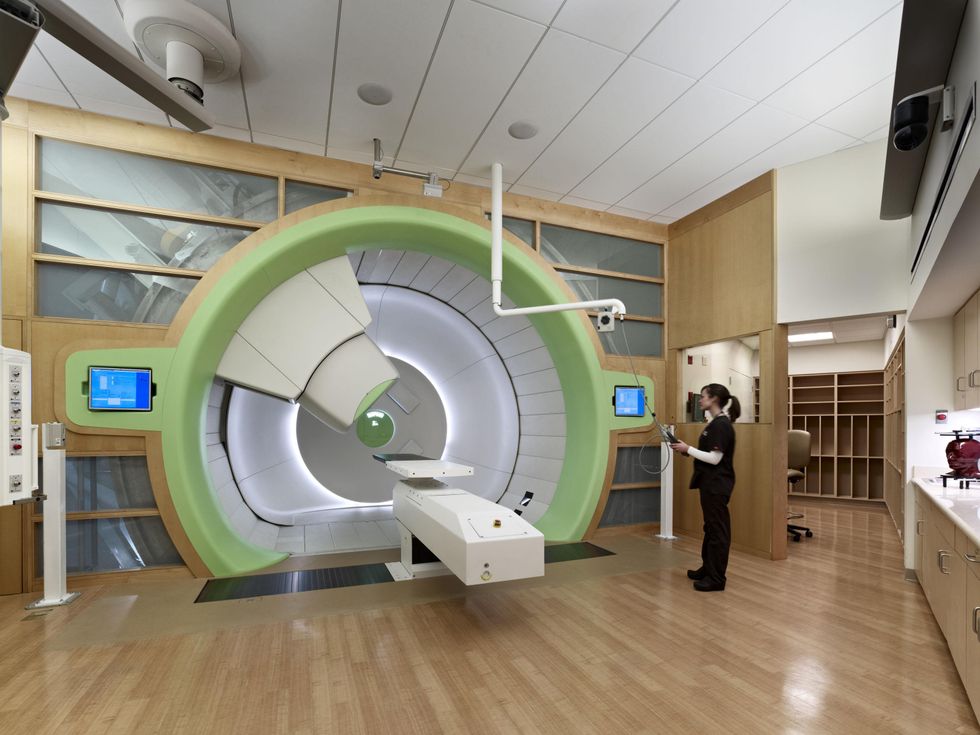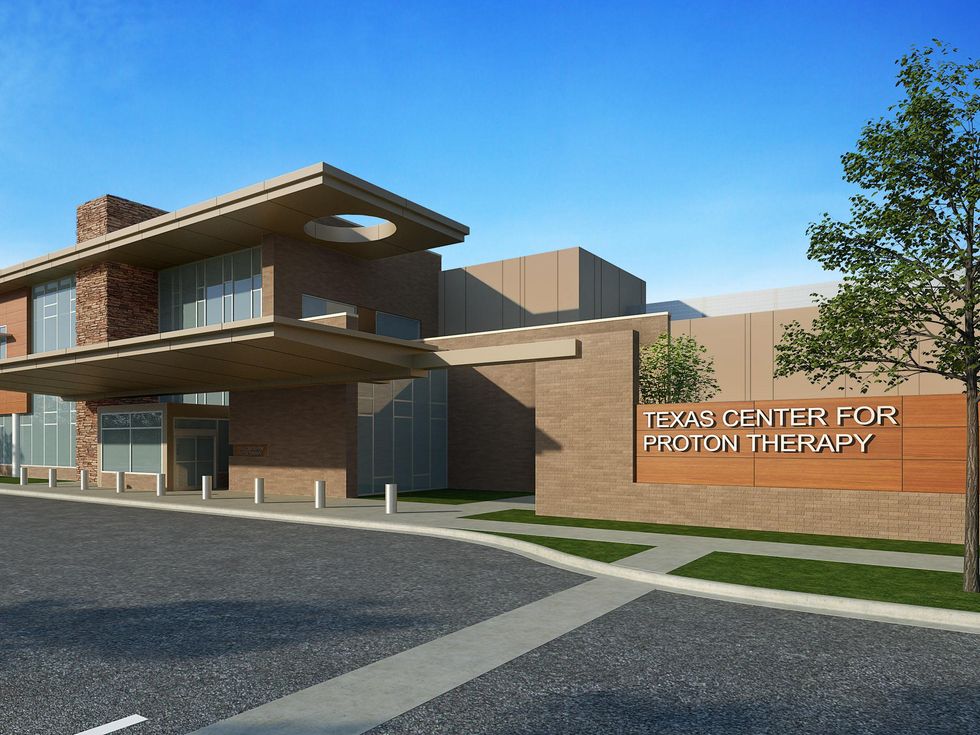Medical Advances
Texas Center for Proton Therapy brings innovative cancer treatment to Dallas-Fort Worth
In the world of cancer treatment, innovation is always on the agenda. Although the M.D. Anderson Cancer Center in Houston has put Texas on the map for cancer treatment, Irving is joining the esteemed hospital's ranks by opening the Texas Center for Proton Therapy. Scheduled to start accepting patients in 2016, the $105 million center is breaking ground in Las Colinas on May 15 thanks to Texas Oncology.
Proton Therapy is a relatively new form of radiation treatment that uses a proton beam to damage the DNA of cancer cells. Gary Barlow, the center's director, has been working with this advanced treatment for about seven years in Florida and has more than 25 years of experience in radiation oncology.
Proton Therapy is a highly advanced form of radiation treatment that damages the DNA of cancer cells.
Barlow says that proton therapy is especially beneficial for children with cancer.
"Their bodies are still developing and growing and are very sensitive to radiation," Barlow says. "This highly targeted, precise therapy destroys cancer cells while minimizing damage to surrounding tissue."
Proton therapy is also used to treat cancer in sensitive areas where surgery is not always an option, such as the brain, neck, spine and eyes.
The 63,000-square-foot facility will have an onsite laboratory, three proton therapy treatment rooms, CT and MRI imaging technology, and a team of more than 50 healthcare professionals.
Dr. Scott Cheek is a radiation oncologist with Texas Oncology. Cheek says there is no one in Dallas-Fort Worth currently treating with proton therapy. In fact, there are only 11 proton treatment facilities in all of North America. The closest ones to Dallas are in Oklahoma City and Houston.
The Texas Center for Proton Therapy will provide the most advanced form of proton therapy: pencil beam scanning.
"By avoiding normal healthy tissue with radiation, you reduce the side effects and help patients maintain their quality of life both during and after the treatment," Cheek says.
The center will be able to treat up to 100 patients a day. With an average course of treatment from six to eight weeks, the location choice was important as well.
Barlow says Irving was a natural fit because of its proximity to Dallas-Fort Worth International Airport as well as DART and other amenities such as hotels and dining options.
"Combining advanced technology with genuine, personal support is a hallmark of Texas Oncology’s community-based approach to cancer treatment — and one of the reasons that brought me to Texas," Barlow says.
UT Southwestern Medical School also has plans to join the proton therapy ranks with a future facility near Children's Medical Center in Dallas.


